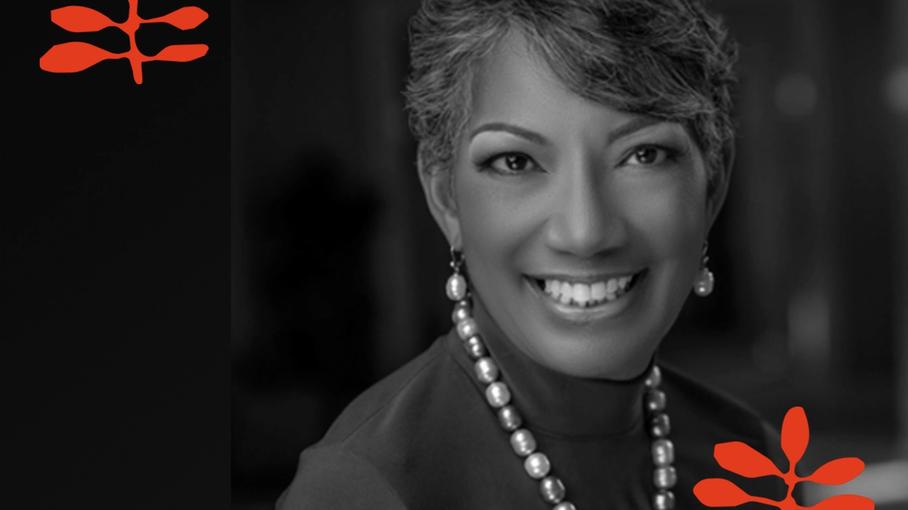Getting ready for your first oncology appointment after a diagnosis can be totally mind-boggling–how do you prepare for something that you have no experience with? To get you ready, here are some tips from the Jadey community and expert advice from medical professionals to help guide you.
You don’t need to process it all right then and there
Sarah Murphy, a licensed therapist who’s worked with breast and ovarian cancer patients for nearly 20 years, says almost all of her patients say they felt overwhelmed during their first oncology appointment.
“Going in, prepare for ‘I’m probably not going to be thinking straight, I’m not going to remember to ask everything that I want to ask, and I’m not going to remember half of what we talk about, and that would make me pretty normal,” Murphy says.
Know this isn’t your only opportunity to ask questions. Cathy Spagnoli, a breast cancer nurse navigator for 27 years, says at Northwestern Medicine and most other hospitals, her patients have access to an online portal and a full team of professionals ready to answer questions at every step about anything from treatment options and oncology social worker referrals to where to park for surgery.
Don’t put too much pressure on yourself to process or ask everything all at once, because you will have other chances to get this information throughout your journey.
Beforehand, take note of your symptoms if you have any and bring a list
Shanna Devine, who was diagnosed with non-Hodgkin lymphoma in April 2025 after being unable to shake a mild and unexplainable sickness for two months prior, says one thing she did before her appointment was take note of all the random symptoms (from fevers to vision flares) she’d been feeling to ask her oncologist about.
A cancer diagnosis comes as a surprise for anyone, but for many of us, it might be preceded by some confusing and unexplainable symptoms. Your oncologist will likely ask you about these, so it’s helpful to have a comprehensive list prepared so they can fully understand what you’ve been experiencing. And if they don’t ask, it’s a good idea to bring these up anyway.
Do some research, but not too much
Researching ahead of time, Murphy explains, is an individual decision: you may be someone who will always want to know more, or you may feel that too much information will just be more overwhelming. It’s important to self-evaluate and know how much information you want to have coming into your first appointment.
Devine says that reading research journals and medical studies about the different kinds of chemo treatments for her cancer helped her feel more comfortable and informed, and helped guide the kinds of questions she asked. “One [treatment method] was proven to be more effective than the other, so if my oncologist didn’t suggest the more effective one I could ask about the reasoning behind it,” Shanna says.
Spagnoli says coming in with some basic knowledge of your diagnosis can be helpful, and while it’s easier said than done, try not to fall into a Google rabbit hole. Keep in mind that every person’s diagnosis and course of treatment is different, and it can be challenging to know if information you read online is applicable to you. Stick to reputable sites—she recommends the National Institute of Health and the American Cancer Society, where information is based on standards of care, to avoid unnecessary worry.
And if the thought of researching your diagnosis sends you into full panic mode, there’s no need for you to be looking up things on your own (or, assign a friend to research; read more tips here about ways your support team can help you).
Bring a list of questions, and something to take notes with
Create a list of all the questions you have about treatment options, what the benefits and risks of each plan are, anticipated side effects, if you’ll need to take off work, and about counseling and support groups. (We’ve compiled a more comprehensive list of specific questions you might want to bring in this list here.)
And, bring something to take notes with, as well. Your emotions will be heightened, Murphy says, and it’s okay to feel overwhelmed and not remember everything. By bringing questions and taking notes, you can try to organize your thoughts and write down the things you may not remember.
… or ask to record the conversation
Ask your doctor if you can make an audio recording of your appointment on your phone. Christy Lingo was diagnosed with breast cancer at 44 in October of 2021, and at her first appointment with an oncologist, she remembers acting totally composed, but feeling absolutely overwhelmed. She remembers hearing a million words she didn’t understand and now in retrospect wishes she’d recorded the conversation.
However, some doctors may not want to be recorded. Barb Regis, the Associate Medical Director of the Survivorship program at Fred Hutch Cancer Center in Seattle and a cancer survivor, says that she understands why people want to record as a way to have something to look at, but she often refuses, because she thinks it can shift how candidly she speaks. “It takes away from the conversation, a little bit, because if I know I'm going to be recorded, then I'm going to be very careful how I say things the way I do, and I don't think I can get as organic with you.” However, she encourages that you ask your provider if you would like to record. This policy will vary provider by provider.
Some doctors might not allow this, but there’s often no harm in asking. With a recording you can at least relieve some of the stress of trying to catch and remember every word—you can focus on listening and asking questions, and refer to your recording later when you inevitably have more questions.
Bring a support person (or two)
Murphy and Spagnoli both suggest you bring another set of ears, for both moral support and help with processing everything. You’ll want to choose someone who can be calm and reliable, someone who can listen, take notes and remember the things you might miss in your heightened emotional state. But, it’s important to know that if you’re bringing in your partner, a family member, or a close friend with you for moral support, they might also be emotional. If you’re bringing someone who you think might struggle to stay calm, you may find it helpful to bring a second support person to be the reliable notetaker.
Advice for during the appointment
Your oncologist and nurses want you to feel comfortable and confident in your treatment, and you want to get the best care possible, so during your appointment, listen as well as you can, ask all the questions you have, and it’s worth it to repeat answers back to your doctor to ensure you have a grasp on what they’re telling you. Ask about treatment options, clinical trials, other resources like social workers and support groups, and maybe most importantly, ask about how you can contact them later if you have more questions.
If you’re feeling comfortable with this oncologist, you can ask to make your next appointment at the end, but if something feels off or you’re not feeling confident about the treatment they suggest, ask about getting a second opinion (check out our guide here for tips on this). During your appointment you can ask your doctor to tell you exactly what your diagnosis is so you can write it down, and they can refer you out to other specialists.
Ricki Fairley, a breast cancer survivor and CEO and Co-Founder of TOUCH, the Black Breast Cancer Alliance, says the most important thing is to get the best care you can, and finding the right doctor is a major part of this. “If you don’t have 120% confidence in your doctor, you can fire them. There’s plenty more… No is never the answer, it’s always how,” Fairley says.
Take a pause to organize your thoughts and notes afterwards while they’re fresh
Afterwards, Murphy suggests trying to organize your thoughts. Both you and your supporter can go through your notes and talk about what you both heard, what you remember and write down anything else that comes to mind, including new questions you may have or follow up actions you may need to take.
Then try to clear the air
And once you’ve gotten through the appointment, take a second to breathe. It was overwhelming, but you made it through, and you should reward yourself. Take a walk, watch your favorite movie, go out to dinner with a friend, or just do something that feels good to you. It’s difficult to realize in the moment, but you are brave for going through this, and you should give yourself grace at every step of the way.









